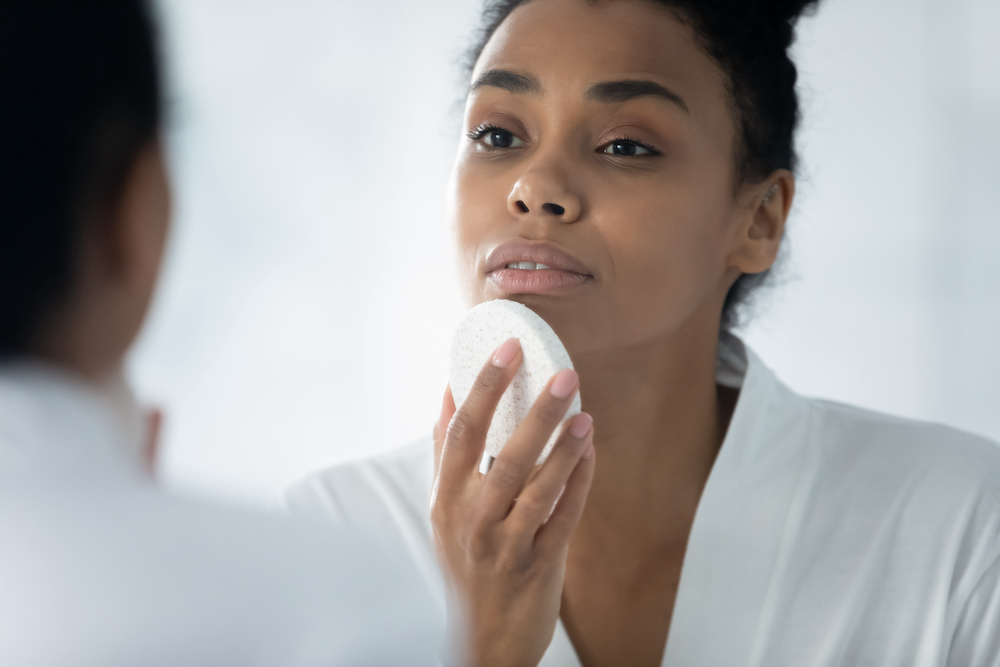Hormonal Acne in Women and How to Handle It

Many people think of acne as something that happens to teenagers. The reality is that many people experience acne throughout their lives and well into adulthood. Women, in particular, can suffer from acne due to the hormonal changes that come with their menstrual cycles.
If you suffer from regular breakouts as a woman, you might consider that your acne is due to hormones. How do you know if your acne is hormonal? What can you do about it if it is? Read on to learn more about hormonal acne, how to identify it and what kinds of treatments are available.
Signs and Symptoms of Hormonal Acne
Two of the primary factors that may indicate hormonal acne in women include the location of the breakouts and the time in which they occur.
A lot of hormonal acne occurs along the jawline, on the chin as well as on the chest and back. Another consideration is if the breakouts coincide with your menstrual cycle. If you tend to break out right before your period, you may be experiencing hormonal acne. The key to identifying hormonal acne is to pay attention to both location and timing. Hormonal acne will follow a similar pattern month after month.
Treatments for Hormonal Acne
Anytime you are suffering from a skin condition such as acne, it is always best to consult with a board-certified dermatologist first. Your dermatologist will help you identify the cause of your breakouts and suggest the proper treatment for your skin. Your doctor will be uniquely qualified to identify potential underlying causes such as hormones that can be triggering your acne breakouts.
Are there any outside triggers? Most women with hormonal acne will notice breakouts before or during their periods. However, your breakouts may be triggered by other things such as medications you are taking, hormone supplements and even workout and protein beverages. If you are taking any of these, consider ceasing them temporarily to see if that has an impact on your skin. Of course, if you are taking a medication prescribed by a doctor, do not stop taking that medication without consulting with your physician first.
Consider Medication for Hormonal Acne
Some people have found success with certain medications to treat their hormonal acne. Depending on your skin and other health conditions, your doctor may prescribe a birth control pill. Oral contraceptives have been shown to be successful in treating hormone-related acne. Birth control pills that contain estrogen and progesterone are the most effective.
Other medications such as spironolactone have also been shown to be effective in combating hormonal acne. This medication is a diuretic so be sure to discuss the side effects and risk factors with your physician before beginning any course of medication.
In addition to some of the options above, proper skin care can be effective at treating acne related to hormones when used in conjunction with other treatments. For any acne-prone skin, using a gentle cleanser and noncomedogenic moisturizers and makeup can help minimize breakouts. Topical treatments such as salicylic acid, benzoyl peroxide or topical forms of vitamin A like Retin-A can also work to reduce the appearance of breakouts.
Hormonal acne is frustrating because it comes back frequently and it seems that you can never get ahead of it. However, with the help of a dermatologist, you can get to the bottom of your hormonal acne and see significant, positive results. While your dermatologist will not be able to cure hormonal acne, the proper treatments can keep it under control so you can achieve clear skin.
At Buckhead Dermatology, we understand the frustration you feel when you have hormonal acne. Instead of giving up, call Buckhead Dermatology of Atlanta and College Park today. Dr. Straughn has extensive experience treating acne of all types. Schedule an appointment for a consultation to get on the road to clear skin and a healthy complexion.
